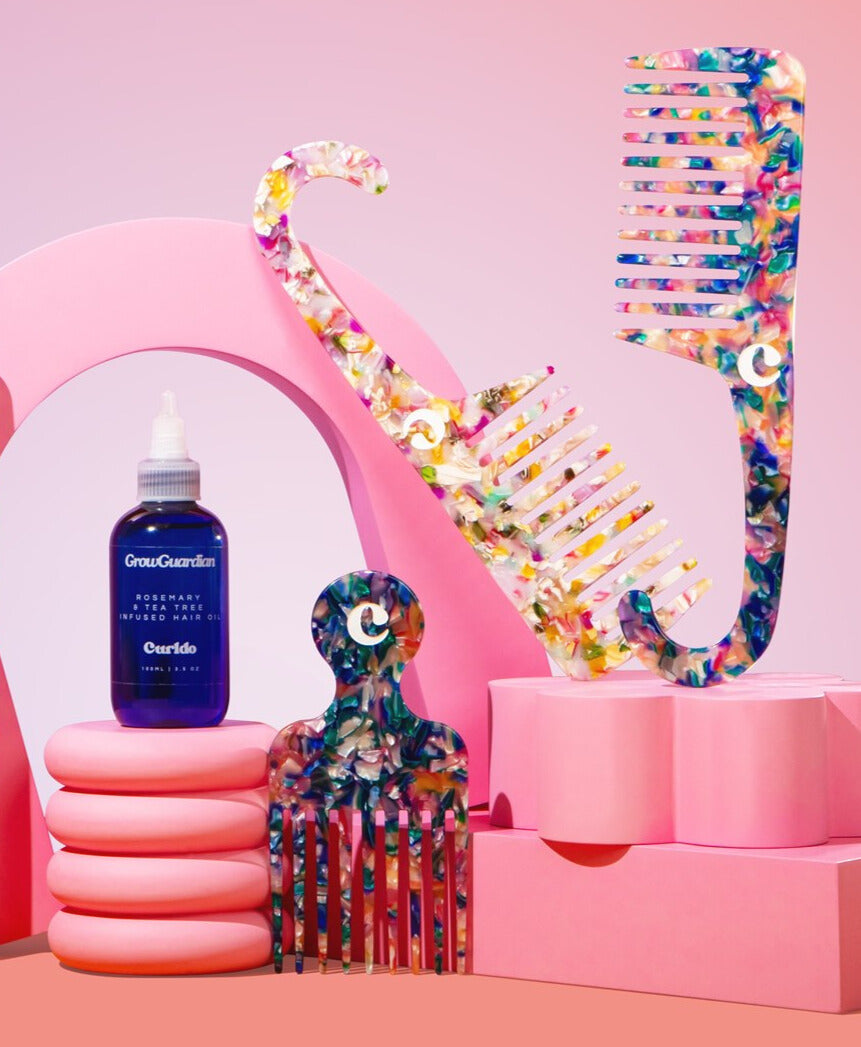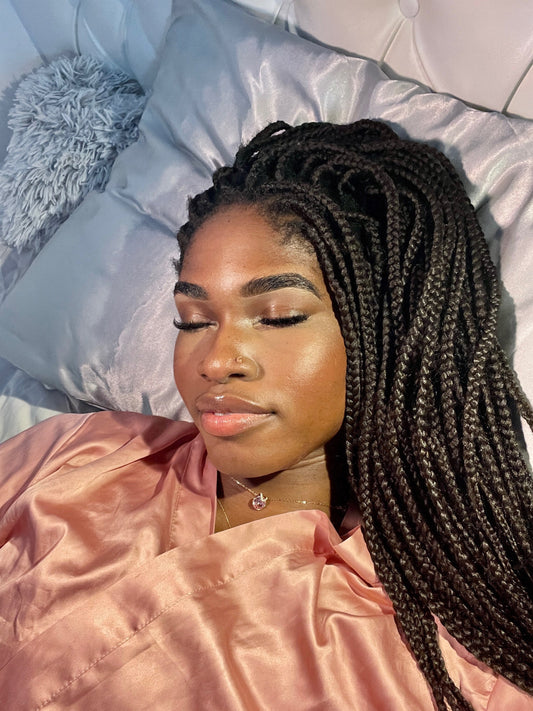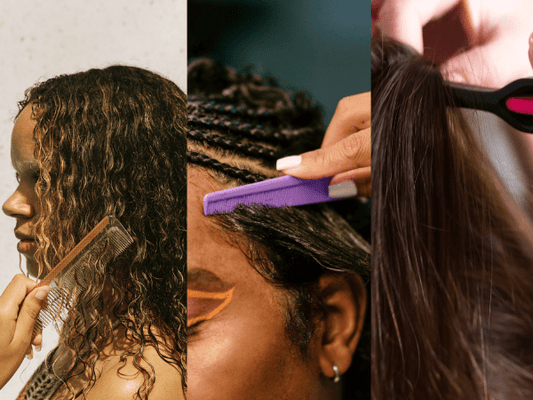The Importance of Protein and Moisture
Curly hair, by its nature, is more prone to dryness and damage than straight hair. The twists and turns of curls make it difficult for natural oils to travel down the hair shaft, leading to dryness. Protein and moisture are essential components that work together to maintain hair health:
- Moisture is vital for elasticity and flexibility, preventing dryness and breakage.
- Protein provides strength to the hair structure, supporting its integrity and preventing damage.
A lack of balance - too much protein and not enough moisture, or vice versa - can lead to hair that is either too brittle or too limp.
Signs Your Hair Needs Protein
Protein deficiency in hair can manifest in several ways. If your curls feel overly soft, limp, or fail to hold their shape, it might be an indication that your hair needs more protein. Additionally, if you notice excessive breakage or hair that stretches significantly before breaking, it's time to incorporate protein treatments into your routine.
Signs Your Hair Needs Moisture
Conversely, signs of moisture deficiency include hair that feels rough, straw-like, or looks dull. Curls may become frizzy, difficult to manage, or lose their definition. If your hair snaps easily when stretched, it's a clear indicator that it's craving moisture.
Balancing Act: Strategies for Healthy Curls
Achieving the right protein-moisture balance requires a tailored approach, attentive to the specific needs of your curls. Here are strategies to help you maintain this delicate balance:
1. Incorporate Regular Protein Treatments
- Start with light, protein-rich products if you're new to protein treatments. Look for products containing silk protein, keratin, or amino acids.
- Use protein treatments sparingly, starting once a month to gauge how your hair responds. Overuse of protein can make hair stiff and brittle.
- After a protein treatment, always follow up with a deep conditioning treatment to restore moisture.
2. Deep Condition Regularly
- Deep conditioning is crucial for infusing moisture into your curls. Look for products with ingredients like glycerin, aloe vera, and shea butter.
- Use heat caps or steamers to enhance penetration of the deep conditioner into the hair shaft.
- Incorporate deep conditioning into your routine at least once a week, or more frequently if your hair is particularly dry.
3. Listen to Your Hair
- Pay attention to how your hair feels and looks after treatments. If it becomes too limp or soft, cut back on moisture and introduce more protein. If it feels stiff or straw-like, increase moisture treatments.
- Remember, the needs of your hair can change with the seasons, your diet, and even your health. Be prepared to adjust your routine accordingly.
4. Maintain a Healthy Hair Care Routine
- Avoid harsh sulfates in shampoos that can strip hair of its natural oils.
- Minimize heat styling and chemical processes that can damage hair and upset the protein-moisture balance.
- Protect your hair with silk or satin scarves or pillowcases to prevent moisture loss overnight.
5. Hydrate and Nourish From Within
- A balanced diet rich in vitamins, minerals, and antioxidants can support hair health from the inside out. Ensure adequate intake of water to keep both your body and your hair hydrated.
- Supplements like biotin, zinc, and omega-3 fatty acids can also support hair health, but consult with a healthcare provider before starting any new supplement.
Customizing Your Approach
Every head of curly hair is unique, and what works for one person may not work for another. It's essential to customize your approach based on your hair's porosity, density, and curl pattern. For example, high porosity hair may require more frequent protein treatments to fill in the gaps in the hair cuticle, while low porosity hair may struggle to absorb moisture and benefit from lighter, more frequent hydration.
Conclusion
Balancing protein and moisture is a cornerstone of healthy curly hair care. By understanding the signs of protein and moisture imbalance and implementing a tailored hair care routine, you can maintain the health, elasticity, and vitality of your curls. Remember, achieving the perfect balance is a dynamic process that requires patience, experimentation, and attentiveness to the changing needs of your hair. With the right approach, you can ensure your curls remain bouncy, shiny, and beautifully defined, embodying the full essence of your natural beauty.











